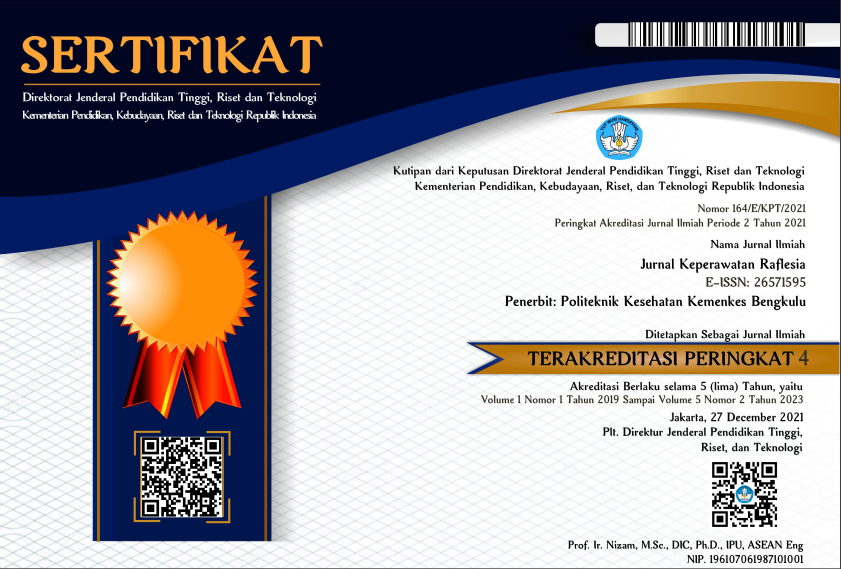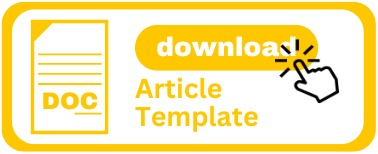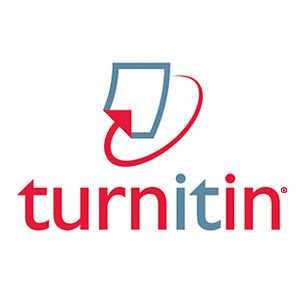Hubungan Pola Asuh Orang Tua dengan Kejadian Temper Tantrum Anak Usia Prasekolah (3-6 Tahun) di Taman Kanak-Kanak
DOI:
https://doi.org/10.33088/jkr.v4i2.791Keywords:
Temper tantrum, parenting, preschool childrenAbstract
Temper tantrums are conditions where children experience unplanned outbursts of emotion and frustration. Children's emotional development will be disrupted if temper tantrums are not handled and left unchecked. One of the factors that can influence is parenting style. The research objective was to determine the relationship between parenting style and the incidence of temper tantrums. The research design is descriptive quantitative with a cross-sectional approach, the number of samples is 78 respondents with the Consecutive Sampling method. Data collection used the short version of the Parenting Style and Dimensions Questionnarie (PSDQ) instrument. Data were analyzed with univariate and bivariate analysis. Bivariate analysis using the tau control test. Statistical test results showed that there was a significant relationship between parenting style and temper tantrums (p<0.05), there was no authoritarian parenting relationship (p>0.05), there was no relationship with permissive parenting (p>0.05, there was no democratic relationship (p >0.05), and there was no relationship between indifferent parenting (p>0.05).There is a need for health promotion efforts regarding proper parenting.
Downloads
Published
Issue
Section
License
Authors who publish with JURNAL KEPERAWATAN RAFLESIA agree to the following terms:
- Authors retain copyright and grant the Jurnal Keperawatan Raflesia right of first publication with the work simultaneously licensed under a Creative Commons Attribution License (CC BY-NC-SA 4.0) that allows others to share (copy and redistribute the material in any medium or format) and adapt (remix, transform, and build upon the material) the work for any purpose, even commercially with an acknowledgement of the work's authorship and initial publication in Jurnal Keperawatan Raflesia.
- Authors are able to enter into separate, additional contractual arrangements for the non-exclusive distribution of the journal's published version of the work (e.g., post it to an institutional repository or publish it in a book), with an acknowledgement of its initial publication in Jurnal Keperawatan Raflesia.
- Authors are permitted and encouraged to post their work online (e.g., in institutional repositories or on their website) prior to and during the submission process, as it can lead to productive exchanges, as well as earlier and greater citation of published work (See The Effect of Open Access).

















